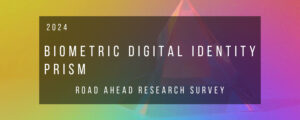Welcome to FindBiometrics’ digest of identity industry news. Here’s what you need to know about the world of digital identity and biometrics today:
Magistrate Green Lights Lawsuit Against MSG’s Facial Recognition
U.S. Magistrate Judge James Cott has determined that a lawsuit against Madison Square Garden concerning its use of facial recognition technology should proceed. MSG has been accused of using the tech to bar perceived enemies, such as attorneys involved in lawsuits against the firm, from entering its Radio City Music Hall venue. New York City’s biometrics law prohibits businesses from profiting from the sale of biometric data; the lawsuit argues that it should also apply to situations in which the technology is used to discourage legal actions against a company. A federal judge will now decide whether the lawsuit should go forward, but such decisions usually follow magistrate recommendations.
Coffee Meets Bagel Faces BIPA Lawsuit
Coffee Meets Bagel has become the latest dating platform to face a class action lawsuit under Illinois’s Biometric Information Privacy Act (BIPA). The suit revolves around the platform’s use of a selfie-based identity verification system, which uses facial recognition to match an end user’s selfie to the images they use on their dating profile. The plaintiff alleges that Coffee Meets Bagel never asked for his consent for the collection of his biometric data, as required under BIPA, nor did the platform make the required disclosures about data use and retention.
Daon Delivers Selfie-Based IDV to Telefónica
The Spanish telecom Telefónica is now using selfie-based identity verification technology from Daon across its digital channels. Daon’s system uses facial recognition to match an end user’s selfie photo to an image of their physical ID, with liveness detection in place to ensure that the user truly is present during the onboarding session. Telefónica says it plans to expand on the identity verification system to enable selfie-based authentication in the future, allowing customers to more easily perform certain transactions. Telefónica is the second-largest corporation in Spain, after Santander Group, and operates the Movistar and O2 brands.
Taliban Embraces SIMs
In Afghanistan, the Taliban are offering humanitarian packages of food, tents, and SIM cards to newly repatriated refugees who have been departed back to the country from Pakistan. The Taliban government is reportedly prioritizing the distribution of SIM cards across the country, in an effort that “seems driven by the government’s interest in collecting and centralizing biometric data for identification, tracking, and surveillance purposes,” according to the former chairman of the Afghanistan Telecom Regulatory Authority.
TSA PreCheck Membership Surpasses 18M
TSA PreCheck now has over 18 million members, the US Transportation Security Administration has announced, after over 4 million signed up in 2023. TSA PreCheck offers American travellers expedited security screening at US airports, after they have registered certain biographic and biometric information. In reviewing the program’s growth over the past year, the TSA also noted that eight additional airlines had signed on to the program, and that Telos had joined IDEMIA in acting as a provider of enrollment services.
Mobile ID Heads to Baylor University
Texas’ Baylor University has become the latest institution of higher learning to embrace mobile ID for students, who can now use an NFC-enabled digital credential to check into class and events, buy lunch and make other purchases, and access facilities secured by Schlage AD-400 locks. “The combination of usability, convenience and security with this solution will enhance the Baylor campus experience for students, faculty and staff,” asserted Baylor University CIO and CISO Jon Allen. The mobile student ID solution was developed and delivered by CBORD and Allegion.
–
January 15, 2024 – by Alex Perala







Follow Us